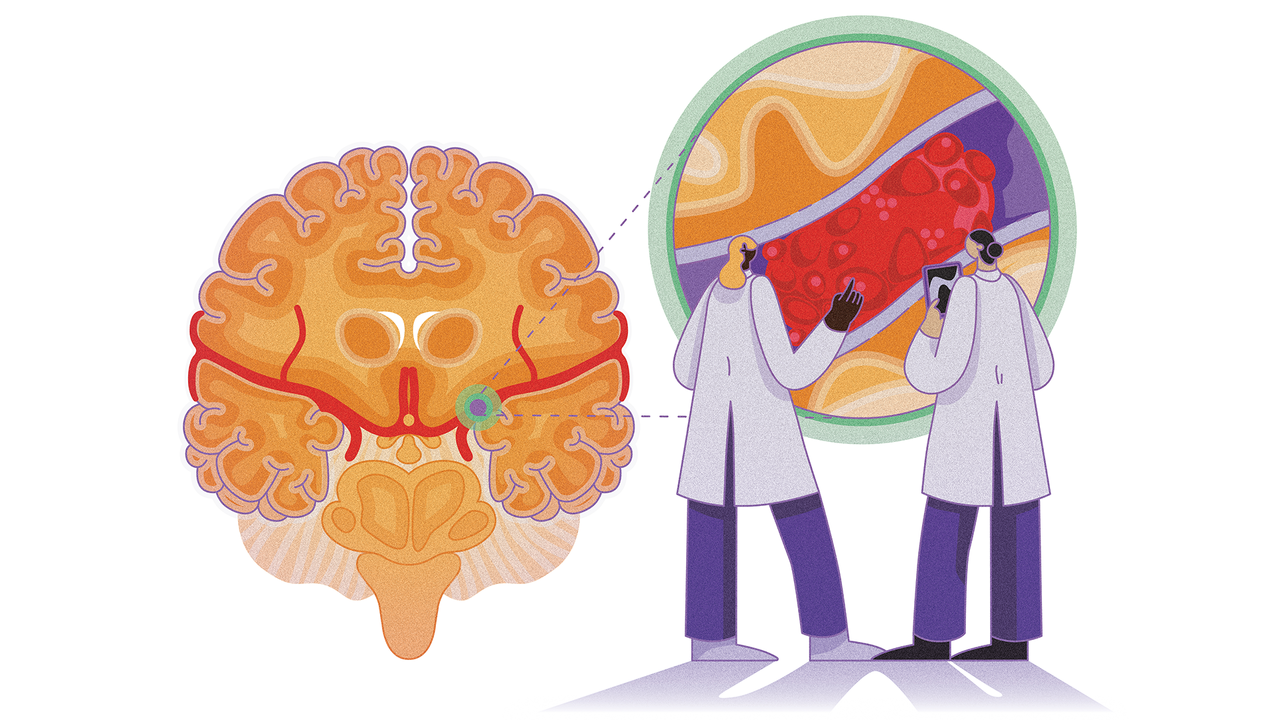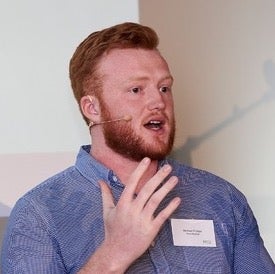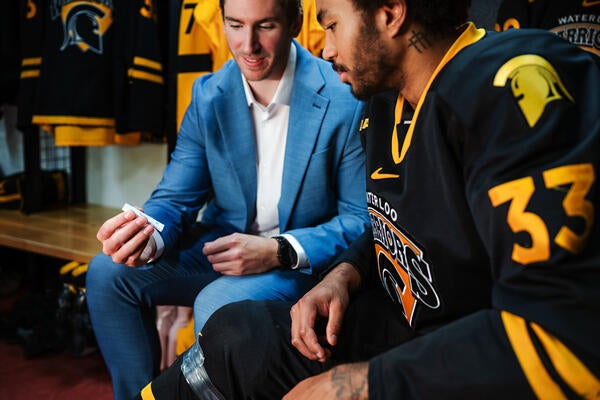
Saving stroke victims with the world’s smallest camera
Founder Fuel: Student startup helps surgeons remove blood clots in the brain

Founder Fuel: Student startup helps surgeons remove blood clots in the brain
By Faculty of EngineeringThe entrepreneurship ecosystem at Waterloo Engineering nurtures promising ideas into thriving enterprises. In our weekly Founder Fuel series, we look at new ventures and how they have benefited from that crucial early support.
According to high-profile venture capitalist Chamath Palihapitiya, launching any startup is hard, so you might as well aim high. Michael Phillips and his roommate Phillip Cooper (both BASc ’17, mechanical engineering, entrepreneurship option) took that advice seriously when they co-founded Vena Medical.
For their Capstone Design project, the pair decided to create a camera that could help surgeons remove blood clots from the brains of stroke patients. That meant making the world’s smallest camera — and making it flexible enough to travel through a maze of veins and arteries.
They knew they would need all the help they could muster, plus a whole lot of money, so they lined up advisors from Waterloo Engineering and the Conrad Centre and started sending out funding proposals.
In 2017, their focused approach secured support from the Esch awards, the Engineer of the Future Fund and the Palihapitiya Venture Creation Fund.
 Michael Phillips, co-founder and CEO of Vena Medical.
Michael Phillips, co-founder and CEO of Vena Medical.
“By the time we graduated, we had $150,000 in grants,” Phillips says.
One success led to the next, including patents, pre-clinical trials and widely cited journal articles.
The team also invented a complementary device that recently received Health Canada approval: a balloon distal access catheter that allows doctors to get much closer to a clot, making it easier to remove.
“It’s been a pretty exciting five years. But once we start treating patients, that’s when it will be real,” says Phillips, adding that they expect human trials to begin by the end of 2022.
Clearly, aiming high has paid off, but Phillips also credits the Accelerator Centre, Velocity, Communitech and other early stage supporters for helping Vena Medical hit the mark.
“They make it easy to start a company,” he says.
This story first featured in WEAL 2022.

Read more
New medical device removes the guesswork from concussion screening in contact sports using only saliva

Read more
Here are the people and events behind some of this year’s most compelling Waterloo stories

Read more
From transforming solutions for homeownership to advancing health care interventions, Waterloo talent continues to disrupt industries and drive change
The University of Waterloo acknowledges that much of our work takes place on the traditional territory of the Neutral, Anishinaabeg, and Haudenosaunee peoples. Our main campus is situated on the Haldimand Tract, the land granted to the Six Nations that includes six miles on each side of the Grand River. Our active work toward reconciliation takes place across our campuses through research, learning, teaching, and community building, and is co-ordinated within the Office of Indigenous Relations.